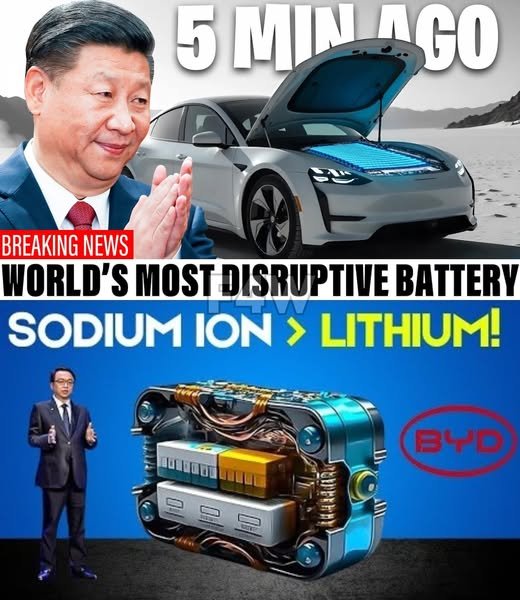As the world shifts towards sustainable energy solutions, the electric vehicle (EV) industry is undergoing a significant transformation. At the forefront of this revolution are sodium batteries, which promise to outshine the conventional lithium-ion technology that has dominated the market. As this technological shift unfolds, major players like BYD and Toyota must adapt or risk being left behind.
Sodium batteries operate on the same basic principles as lithium-ion batteries but utilize sodium ions instead of lithium ions. Sodium is abundant and inexpensive, making it an attractive alternative for large-scale energy storage. This shift could potentially reduce the costs associated with battery production, which have been a significant barrier to widespread EV adoption. With sodium extracted from common sources, the supply chains for battery materials become more resilient and less susceptible to geopolitical tensions that often plague lithium mining.
Recent advancements in sodium battery technology have led to impressive performance metrics. Researchers have developed new cathode materials that enhance energy density and charging speeds, making sodium batteries increasingly competitive. Studies indicate that these batteries can achieve lifespans of up to 3 million miles—far exceeding the typical lifespan of lithium-ion batteries, which generally last around 1,000 cycles. This longevity is particularly appealing for consumers and manufacturers alike, as it translates to lower costs over the life of the vehicle.
The environmental impact of sodium batteries also merits consideration. The production and disposal of lithium-ion batteries pose significant ecological challenges, including pollution and resource depletion. Sodium, being more abundant and less harmful to extract, presents a more sustainable option. As governments and consumers alike become more environmentally conscious, the appeal of sodium batteries is likely to grow, further pressuring traditional lithium battery manufacturers to innovate.
For established automotive giants like BYD and Toyota, the rise of sodium batteries presents both a challenge and an opportunity. BYD, a leader in electric vehicles and battery technology, has already begun investing in sodium battery research. Their proactive approach may allow them to capitalize on the new technology before their competitors. Conversely, Toyota, known for its pioneering hybrid technology, has been slower to embrace fully electric solutions. If they fail to pivot quickly towards sodium battery technology, they risk losing market share to more agile competitors.
The market dynamics are also changing with new entrants focusing exclusively on sodium battery technology. Companies dedicated to this innovation could disrupt the status quo, forcing traditional manufacturers to adapt or innovate. The competitive landscape is shifting, and those who can leverage sodium battery technology effectively will likely emerge as leaders in the EV market.
In conclusion, sodium batteries represent a significant technological advancement that could redefine the electric vehicle landscape. With the potential for longer lifespans, lower costs, and a reduced environmental footprint, they are poised to challenge lithium-ion batteries head-on. For BYD and Toyota, the stakes are high. The ability to adapt to this emerging technology will determine their future in an increasingly competitive market. As the transition to sodium batteries unfolds, it will be fascinating to see which companies will thrive and which will falter in this new era of energy storage.



